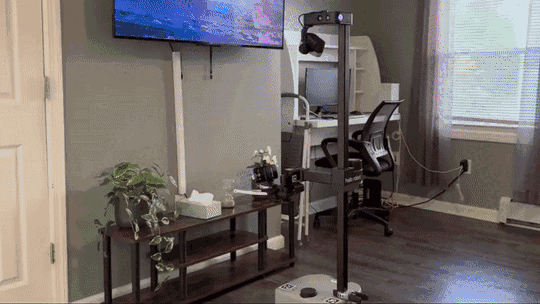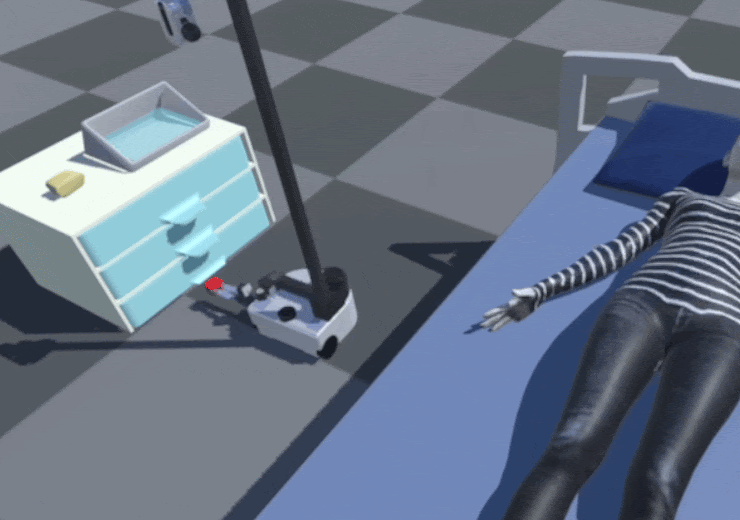Stretch Community News - November 2024
Greetings from Hello Robot!
We have enjoyed seeing so many of our community members at RSS, IROS, RO-MAN, and CoRL these past few months! There has been some great new work with Stretch - this month we have Robot Utility Models, programming by demonstration, robots (intentionally) making mistakes, and more! Read on for details. If you’d like to see your work featured in a future newsletter, please let us know!
Robot Utility Models (RUMs) is a new framework for training and deploying zero-shot robot policies, able to directly generalize to new environments with no additional data or fine tuning! A multimodal LLM provides feedback on task success or failure, allowing automatic retrying. With RUMs, NYU researchers achieved a 90% success rate on zero-shot tasks in novel environments and novel objects!
Don’t forget about the PhyRC challenge, a new competition to facilitate innovation in physical robotic caregiving. The competition has a simulation stage followed by a real robot phase, and the winner of the Mobile Manipulation for Robot-assisted Bed Bathing track will win their very own Stretch 3 robot!
Stretch research from the Allen Institute for AI took home two awards at recent robotics conferences - a big congratulations to the team who won Best Mobile Manipulation Paper at IROS for their work on Harmonic Mobile Manipulation, then followed up by winning joint Outstanding Paper at CoRL for Poliformer - a transformer-based policy trained using RL at scale in simulation. If you haven't seen these impressive papers yet, check them out below!
Diffusion-PbD is a novel approach to programming by demonstration that uses pre-trained foundation models to enable novel manipulation skills from just a single observed human demonstration. Diffusion-PbD works with a wide range of manipulation tasks and can generalize well to unseen objects, camera viewpoints, and scenes.
When robots make mistakes, especially in assistive settings, how much does that affect a user’s perception and trust? CMU researchers explored this question with younger and older adults, and found the answer depends both on the type of task and the age of the user.
The latest Stretch Software drop contains some ROS2 bugfixes, QoL Web Teleop updates including Homing functionality, and a safety feature to indicate when the Stretch battery charger is attached too loosely.






